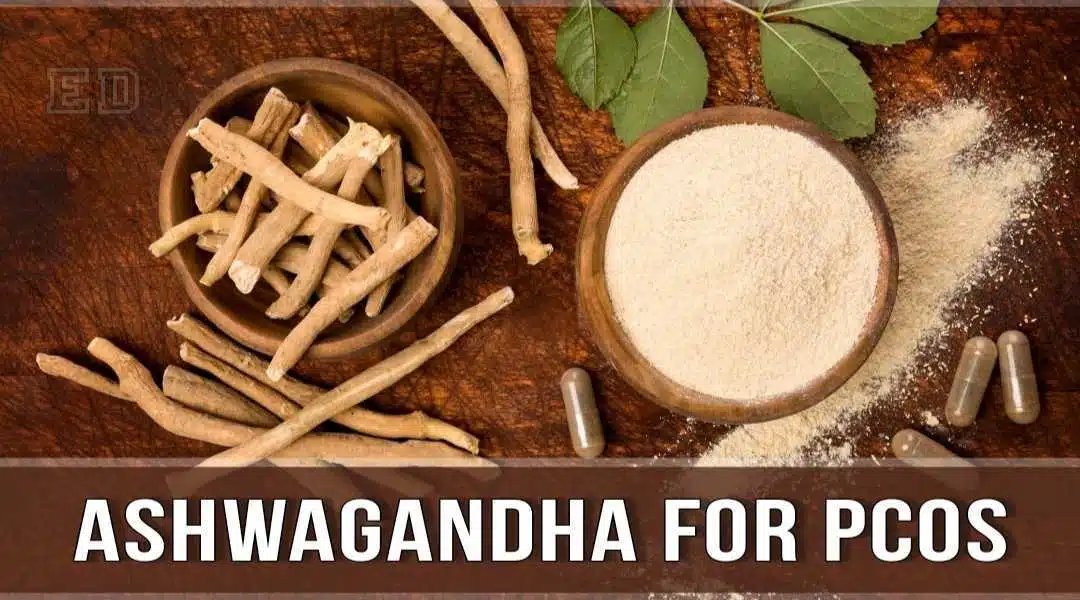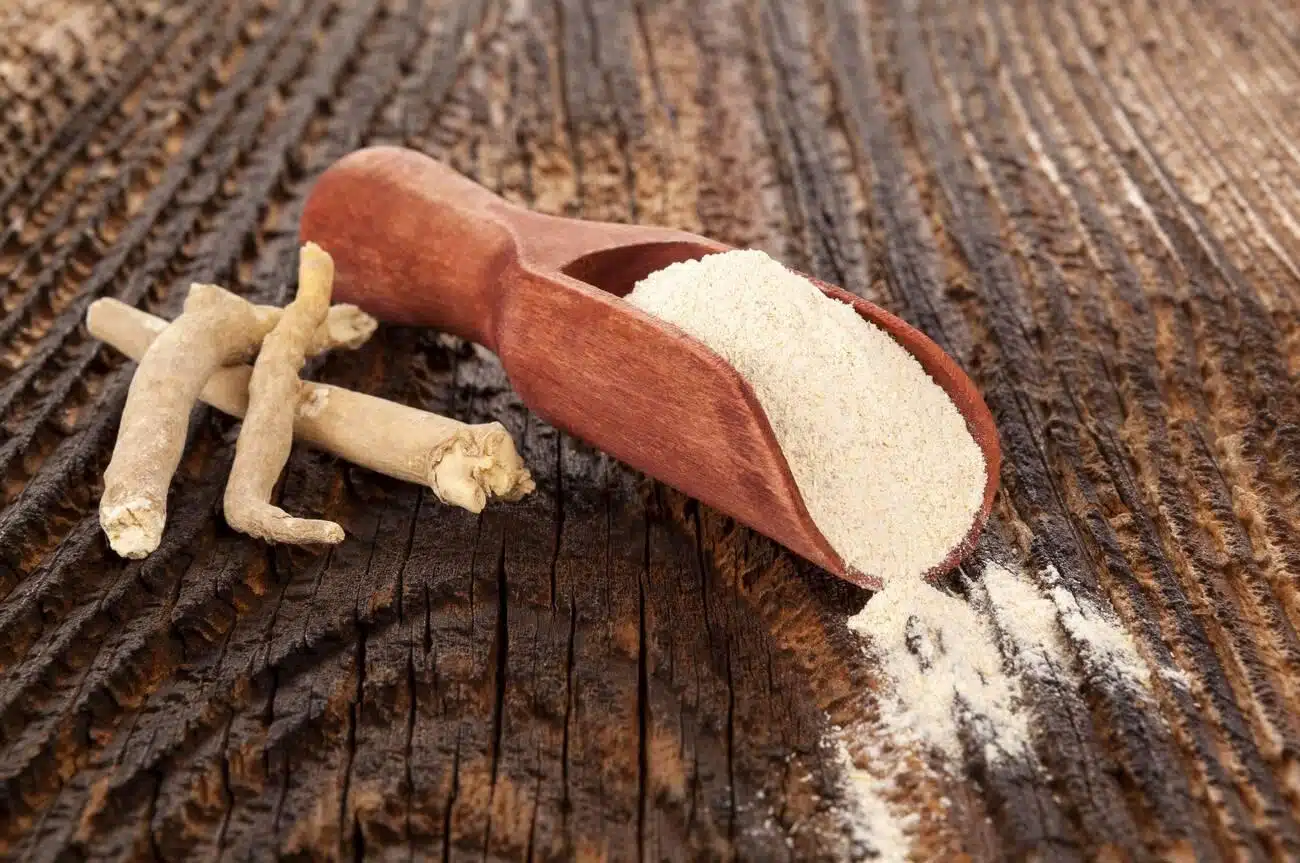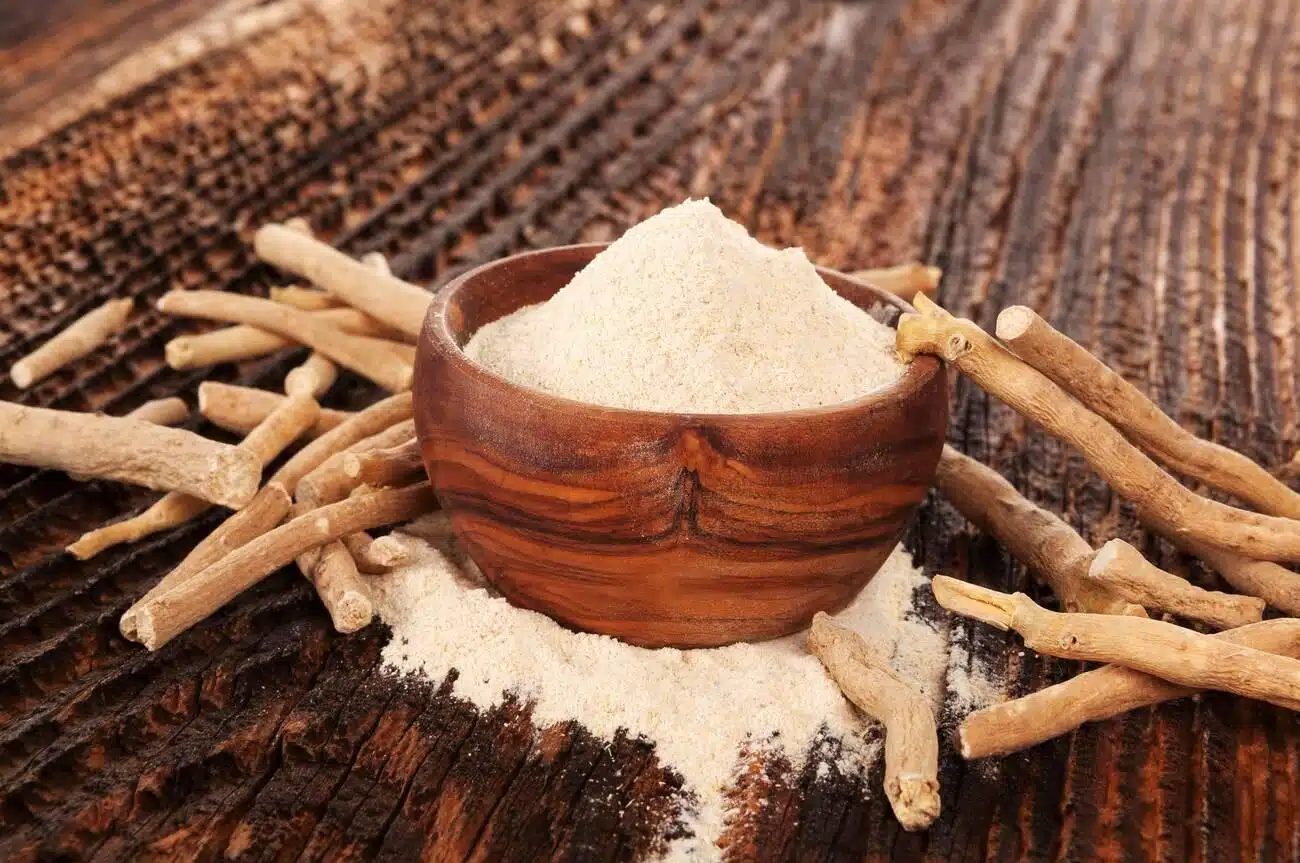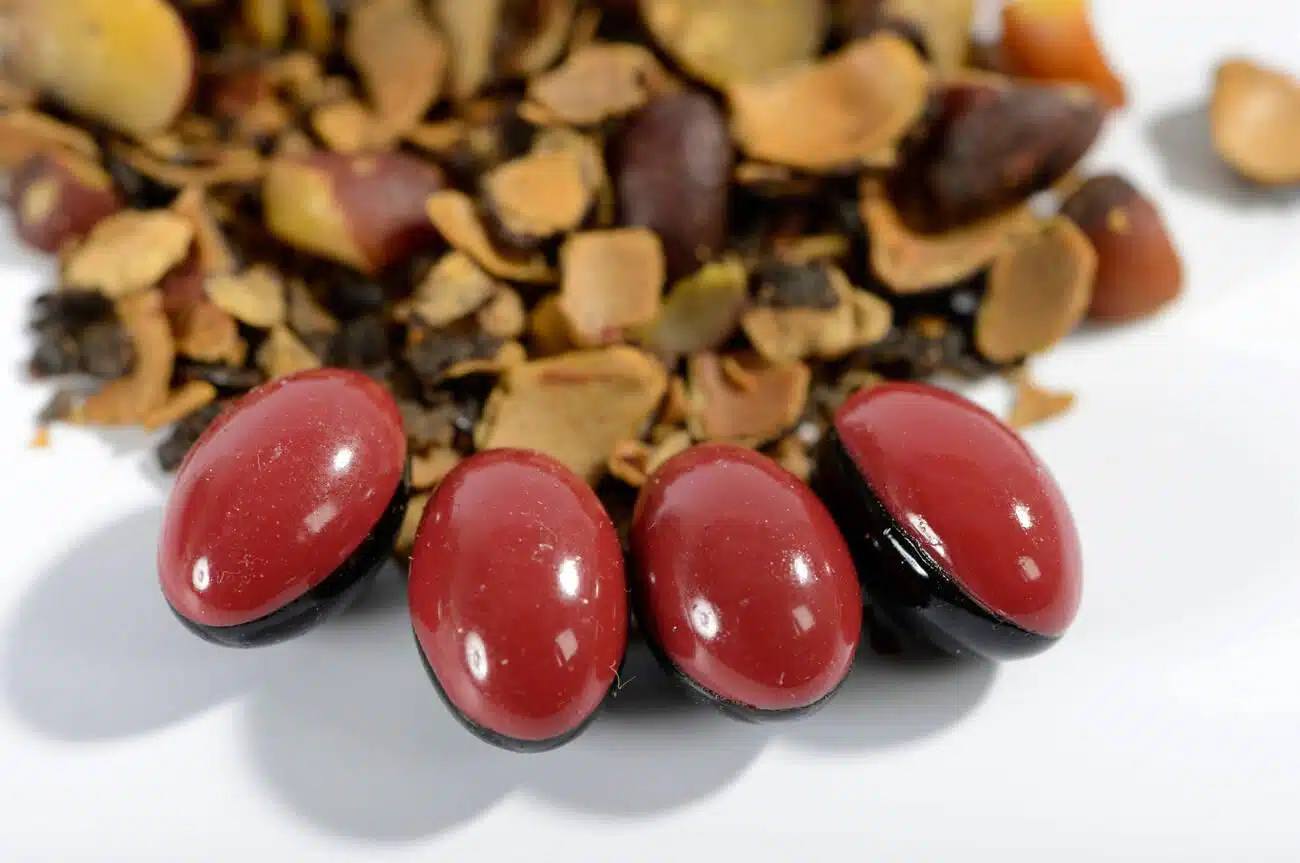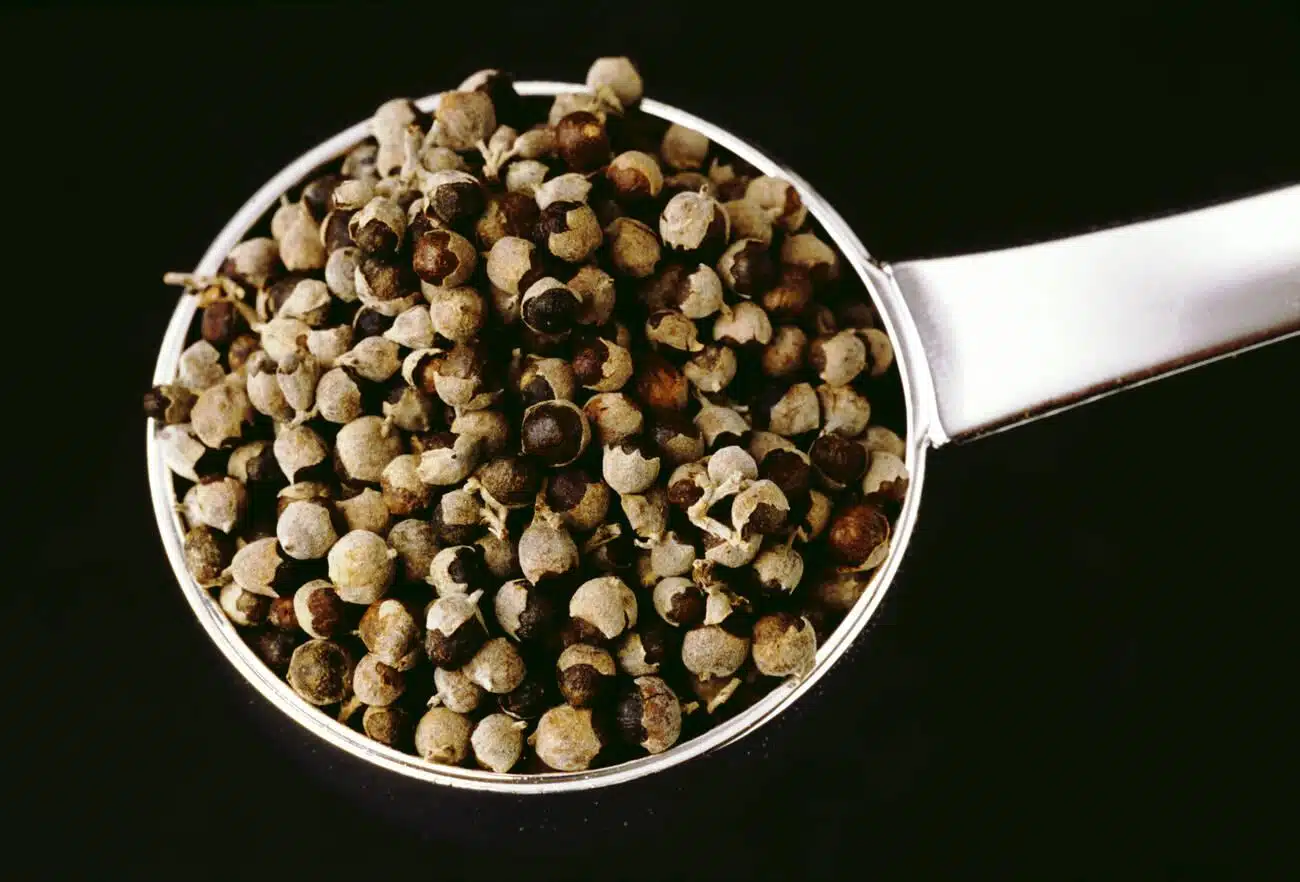Listen to the Podcast:
Have you ever tried ashwagandha for PCOS? Probably you didn’t but hearing a lot lately about it, and that’s why you are here. So, how is Ashwagandha for PCOS?
Well, Ashwagandha is believed to offer some exciting advantages when it’s PCOS. One of the potential benefits is its ability to regulate hormone levels, which is crucial in managing PCOS symptoms.
It’s just a single benefit, but there are more. Continue reading this article and explore everything.
What is PCOS?
PCOS stands for Polycystic Ovary Syndrome, a common hormonal disorder affecting reproductive-age women. Hormonal imbalances and the growth of small cysts on the ovaries characterize it.
PCOS can manifest in various ways and present with symptoms such as irregular menstrual cycles, excessive androgen (male hormone) production, weight gain, acne, and excess hair growth (hirsutism). It is a complex condition that can significantly impact a woman’s physical and emotional well-being.
The exact cause of PCOS is not fully understood, but it is believed to involve a combination of genetic and environmental factors.
Is Ashwagandha Good for PCOS?
Due to its various properties, Ashwagandha is believed to be beneficial for PCOS (polycystic ovary syndrome).
It generally reduces weight gain related to stress by regulating cortisol levels and reducing inflammation associated with PCOS. Aside from that, Ashwagandha also has the potential to correct hormonal imbalances, alleviate anxiety and depression symptoms, and others.
All these show Ashwagandha as a natural supplement that can support PCOS management. However, It is recommended to consult with a healthcare professional before incorporating ashwagandha or any other supplement into your routine.
How Does Ashwagandha for PCOS Work Against PCOS?
We’ve already mentioned that Ashwagandha works Against PCOS, but in this segment, we’ll discuss how Ashwagandha works Against PCOS.
1. Reduces Weight Associated With PCOS
Ashwagandha aids in weight reduction associated with PCOS in individuals with obesity. It achieves this by regulating cortisol levels, a stress hormone contributing to weight gain. Chronic stress activates cortisol, increasing glucose production, heightened hunger response, overeating, and subsequent weight gain. Ashwagandha promotes a healthy stress response, lowers cortisol levels, and supports effective weight management.
2. Reduces Anxiety and Depression
Ashwagandha has calming and anti-anxiety effects, making it beneficial for alleviating anxiety and depression. It contains tryptophan, a precursor to serotonin, a hormone that uplifts mood. Additionally, it activates GABA receptors in the brain, blocking signals of anxiety and stress.
3. Fixes Hormonal Imbalance
Ashwagandha addresses hormonal imbalances by acting as an adaptogen, restoring equilibrium between the immune and neuroendocrine systems. This normalization of bodily functions helps counteract the impact of stress on hormonal balance.
4. Reduces Insulin Resistance
Ashwagandha reduces insulin resistance, a condition where the body requires higher insulin levels to maintain normal blood sugar levels. In PCOS, elevated insulin levels can cause the ovaries to produce excessive androgen hormones like testosterone, leading to symptoms such as increased body hair, acne, and irregular or infrequent periods.
By reducing insulin resistance, ashwagandha helps reverse PCOS symptoms and reduces the risk of developing diabetes.
5. Alleviates Fatigue, Insomnia, and Thyroid Issues
Ashwagandha helps alleviate fatigue, insomnia, and thyroid imbalances associated with PCOS. Stress can cause lethargy and disrupted sleep, but ashwagandha combats stress, relieving fatigue and improving sleep patterns.
Ashwagandha’s thyroid-stimulating effects are particularly beneficial for underactive thyroid glands commonly observed in PCOS. Its adaptogenic properties stimulate the central nervous system, reduce cortisol levels, and balance thyroid hormones, promoting overall well-being.
6. Improves Menstrual Regularity and Fertility
Ashwagandha aids in treating infertility and irregular periods associated with PCOS. PCOS can inhibit ovulation, a significant cause of female infertility.
Ashwagandha’s stress-reducing properties support the reproductive system, as stress affects hormone regulation. Elevated cortisol levels during stress decrease progesterone levels and negatively impact fertility and menstrual cycles. By reducing cortisol levels and relieving body tension, ashwagandha positively affects the reproductive system, libido, and menstruation.
7. Reduces Inflammatory Response
Research suggests that women with chronic conditions like PCOS are more susceptible to experiencing low-grade inflammation, an ongoing body response. This chronic inflammation can stimulate the ovaries to produce excessive androgens, exacerbating PCOS symptoms.
Several studies have indicated that ashwagandha possesses potent anti-inflammatory properties. As a result, it may help mitigate the complications associated with PCOS that arise from chronic systemic inflammation.
8. Supports Antioxidant Defense
PCOS is linked to increased oxidative stress, leading to cellular damage and inflammation. Ashwagandha exhibits antioxidant properties, helping to neutralize harmful free radicals and protect cells from oxidative damage. By supporting the body’s antioxidant defense system, Ashwagandha may help reduce oxidative stress in individuals with PCOS.
9. Enhances Mood and Cognitive Function
Ashwagandha’s adaptogenic properties extend to its positive mood and cognitive function effects. Chronic stress and hormonal imbalances in PCOS can affect mental well-being. Ashwagandha has been shown to improve mood, reduce anxiety, and enhance cognitive function, which may contribute to overall emotional well-being in individuals with PCOS.
10. Enhances Ovulation
PCOS is often characterized by irregular or absent ovulation, which can contribute to fertility issues. Ashwagandha has shown potential in promoting ovulation and improving fertility in women with PCOS. By regulating hormone levels, reducing stress, and supporting reproductive health, Ashwagandha may help restore ovulatory function and increase the chances of conception for those trying to conceive.
You May Find Interest: How Aloe Vera Juice Helps Lose Weight
How to Use Ashwagandha Powder for PCOS?
You can follow these steps to incorporate Ashwagandha powder into your PCOS management routine.
- Measure approximately 1 teaspoon (5 grams) of Ashwagandha powder.
- You can consume the powder directly twice a day, either on its own or by mixing it with honey, ghee, or milk for added taste and benefits.
- Alternatively, you can prepare a soothing Ashwagandha tea using the following ingredients:
- 1/2 cup of water, 1/2 cup of milk, 1 teaspoon (5 grams) of Ashwagandha powder
- A dash of honey (optional, if desired, for sweetness)
- Mix the milk, water, and Ashwagandha powder in a saucepan.
- Heat the mixture until it reaches a lukewarm temperature.
- Consume this Ashwagandha as recommended doses.
How to Use Ashwagandha Tablets for PCOS?
The preparation guide is a bit of a hassle when it’s the Ashwagandha powder you’ve seen. But for tablets, there is nothing such a hassle.
You can directly swallow Ashwagandha tablets with water. But make sure you’re talking about the right amount of it. Make sure to consult your doctor about the dosage.
Dosage and Consumption of Ashwagandha for PCOS
Between 250 and 500 mg of ashwagandha daily is considered an appropriate dosage. Remember, Ashwagandha is available in many different forms. Gummies, capsules, liquid drops, and powders are all forms it comes in. Among them, the most popular forms are Ashwagandha tablets and powder. For the correct dosage, consult your gynecologist or other healthcare professional.
Ashwagandha Tablets vs Powder
People are confused about whether Ashwagandha tablets or powder are more effective for PCOS. The answer is both of them are effective though there are some differences. Check the table below to get a clear idea.
|
Aspect |
Ashwagandha Tablets |
Ashwagandha Powder |
|
Form |
Compressed tablets |
Finely ground powder |
|
Convenience |
Easy to consume and carry |
Requires measuring and mixing |
|
Dosage Accuracy |
Pre-measured dosage per tablet |
Requires accurate measuring for the desired dosage |
|
Absorption |
Takes time to dissolve and absorb in the body |
It may be absorbed more quickly |
|
Flexibility of Usage |
Limited dosing options based on tablet size |
Adjustable dosage as per individual needs |
|
Cost |
It may be more expensive due to the manufacturing |
Generally less expensive |
Best Time to Consume Ashwagandha for PCOS
Ashwagandha can be taken at any time of the day. Avoiding potential discomfort after a meal, preferably breakfast, is generally recommended, although it can also be taken after lunch or dinner.
It’s important to note that the effects of ashwagandha may not be immediate. It could take several days or weeks of consistent use to experience noticeable results. Therefore, it’s advisable to continue taking ashwagandha for the prescribed duration.
Related Find: 8 Health Benefits of Turmeric for Your Body
7 Side Effects of Taking Ashwagandha for PCOS
So far, you’ve understood Regarding the side effects of Ashwagandha for PCOS, some possible adverse effects may include:
1. Worsening of Androgen-related Symptoms
For individuals with PCOS who already have elevated androgen levels, taking Ashwagandha may exacerbate symptoms such as acne and weight gain in the midsection and hips.
2. Liver Concerns
Long-term use of Ashwagandha may strain the liver, potentially leading to complications.
3. Heating Effects
Ashwagandha is believed to have heating properties, which may cause discomfort or adverse effects for specific individuals.
4. Gastrointestinal Discomfort
Another potential side effect of ashwagandha is gastrointestinal discomfort. Some individuals may experience nausea, upset stomach, or diarrhea after taking ashwagandha supplements. These digestive issues are usually mild and transient.
5. Drowsiness
Ashwagandha has mild sedative properties and may cause drowsiness in some individuals. It’s advisable to avoid activities that require alertness, such as driving or operating heavy machinery, until you know how Ashwagandha affects you.
6. Hormonal Effects
Ashwagandha may exert hormonal effects in some individuals, including a potential increase in testosterone levels. This is generally not a concern unless you already have elevated testosterone levels or symptoms related to excess androgens.
7. Interaction with Medications
Ashwagandha may interact with certain medications, including immunosuppressants, sedatives, and thyroid medications. If you are taking any medications, it’s essential to consult with your healthcare professional before starting Ashwagandha to ensure no potential interactions.
Who Should Avoid Ashwagandha for PCOS?
By studying the side effects, we’ve prepared a list of people who should avoid consuming Ashwagandha. Here’s the list
- Pregnant or breastfeeding women
- People with autoimmune diseases
- Individuals with problems with the liver
- People with have excess androgens (Testosterone)
Top Pick: Incredible Health Benefits of Mint
10 Alternatives to Ashwagandha for PCOS
If you want to explore something more, then read this segment. Here I’ve added 5 alternatives to Ashwagandha for PCOS.
1. Saw Palmetto
Saw palmetto is commonly used to support hormonal balance in women with PCOS. It may help reduce excess androgen levels, alleviate symptoms such as acne and hirsutism (excessive hair growth), and support the regulation of menstrual cycles.
2. Cinnamon
Cinnamon has been studied for its potential to improve insulin sensitivity, which is often impaired in individuals with PCOS. Cinnamon may help regulate blood sugar levels and support hormonal balance by enhancing insulin function.
3. Inositol
Inositol is a naturally occurring compound that belongs to the B-vitamin family. It has been found to improve insulin sensitivity, promote ovulation, and regulate menstrual cycles in women with PCOS. Myo-inositol and D-chiro-inositol are the most commonly used forms for PCOS management.
4. Vitex Agnus-Castus (Chasteberry)
Vitex Agnus-Castus, or chaste berry, is often used to regulate hormone levels in women with menstrual irregularities, including PCOS. It may help restore balance by stimulating the production of luteinizing hormone (LH) and reducing the secretion of follicle-stimulating hormone (FSH).
5. Maca
Maca (Lepidium meyenii) is rich in essential nutrients, including vitamins, minerals, and amino acids that work great against PCOS. It has been reported to positively affect menstrual regularity and hormone levels in women with PCOS.
6. N-acetyl-cysteine (NAC)
NAC is an antioxidant that has shown promise in managing PCOS. It helps regulate insulin levels, reduces oxidative stress, and improves fertility outcomes. NAC supplementation may also help with menstrual regularity and the reduction of androgen levels.
7. Berberine
Berberine is a natural compound found in various plants and has been studied for its potential effects on PCOS. It has shown promise in improving insulin sensitivity, regulating menstrual cycles, and reducing androgen levels. Berberine supplementation may be beneficial for individuals with PCOS.
8. DIM (Diindolylmethane)
DIM is a compound found in cruciferous vegetables like broccoli and cauliflower. It helps promote estrogen metabolism and balance hormone levels in the body. DIM supplementation may support hormonal balance and alleviate symptoms of PCOS.
9. Green Tea Extract
Green tea extract contains catechins, which have antioxidant and anti-inflammatory properties. Studies have suggested that green tea extract may help improve insulin sensitivity, reduce androgen levels, and promote weight loss in individuals with PCOS.
10. Spearmint Tea
Spearmint tea has been traditionally used to alleviate symptoms of PCOS. It may help reduce excessive hair growth (hirsutism) and androgen levels by inhibiting androgen production. Drinking spearmint tea regularly may contribute to hormonal balance and improve PCOS symptoms.
Final Verdict
That’s everything on – ashwagandha for PCOS. We’ve tried covering everything and mentioned 7 ways Ashwagandha helps women with PCOS.
However, it’s important to note that ashwagandha may not be suitable for everyone; We’ve already listed the individuals. Make sure to check the list as well as the dosage and consumption.
That’s all for now, good luck.
Disclaimer: This content is for informational purposes only and does not replace professional medical advice, diagnosis, or treatment. This information is not comprehensive and should not be used to make health or well-being decisions. Consult a qualified healthcare professional with questions about a medical condition, treatment options, or health regimen. This website or the content should never replace professional medical advice.


